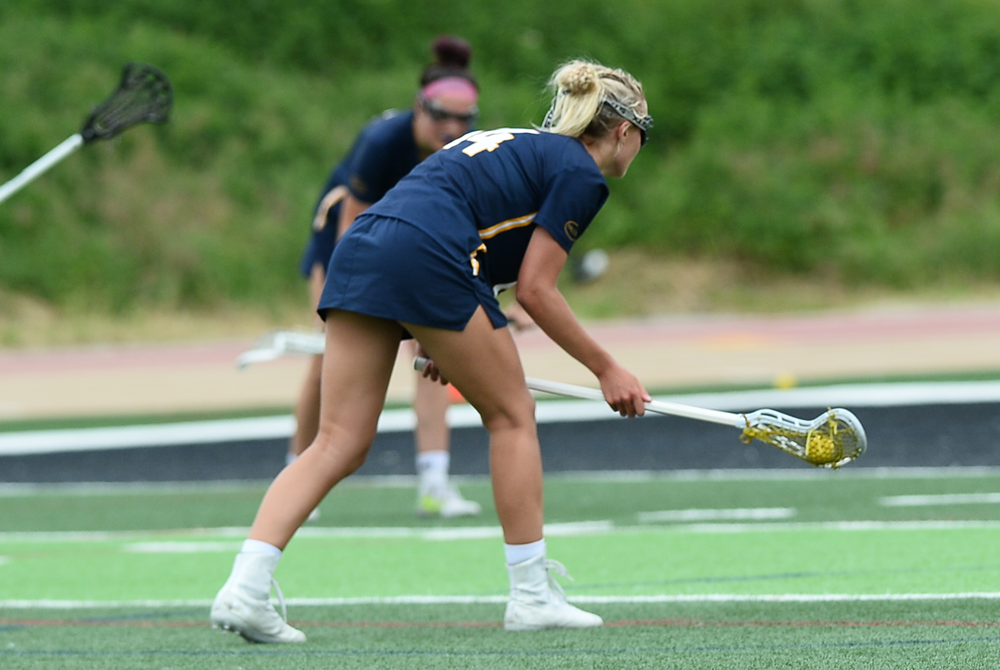
Be the Referee: Baseball Pace of Play
May 19, 2015
This week, MHSAA assistant director Mark Uyl discusses some of the strategies in use at the pro and high school levels to keep baseball's pace of play at an appropriate speed.
Be The Referee is a series of short messages designed to help educate people on the rules of different sports, to help them better understand the art of officiating, and to recruit officials.
Below is this week's segment - Baseball Pace of Play - Listen
If you’ve been listening to the sports media lately, one of hot topics in professional baseball is the length of games and pace of play. Major League Baseball is trying some things this year in terms of a clock that’s on the outfield wall in-between innings to try and hurry up or speed up that dead time between half innings.
In high school rules, pace of play continues to be an area of focus as well. When a pitcher who has thrown the previous inning comes out for the next inning, they are limited to five warm-up pitches, and those must be completed in under 60 seconds.
Umpires are also encouraging kids to hustle on and off the field, to try and keep high school baseball a fast-paced, exciting game for everyone.
Past editions
May 11 - Fair or Foul Ball? - Listen
May 4 - Non-Glare Helmets - Listen
April 27 - Vern L. Norris Award - Listen
March 23 - Deciding the Game - Listen
March 16 - Block/Charge Call - Listen
March 9 - Dive on the Floor - Listen
March 2 - Primary Areas - Listen
Feb. 23 - Too Much TV - Listen
Feb. 16 - Video Clip Library - Listen
Feb. 9 - Cheer Safety - Listen
Feb. 2 - Basketball PA Announcers - Listen
Jan. 26 - Wrestling Health Concerns - Listen
Jan. 19 - Basketball Physical Contact - Listen
Jan. 12 - Video Review Part 2 - Listen
Dec. 29 - Video Review Part 1 - Listen
Dec. 17 - Registration Part 2 - Listen
Dec. 10 - Registration Part 1 - Listen
Dec. 3 - Legacy Program - Listen
Nov. 26 - Sideline Management - Listen
Nov. 19 - 7-Person Mechanics - Listen
Nov. 12 - Blocking Below the Waist - Listen
Nov. 5 - Tournament Selection - Listen
Oct. 29 - Uncatchable Pass - Listen
Oct. 22 - Preparation for Officials - Listen
Oct. 15 - Automatic First Downs - Listen
Oct. 8 - Officials & Injuries - Listen
Oct. 1 - Overtime - Listen
Sept. 25 - Field Goals - Listen
Sept. 18 - Tackle Box - Listen
Sept. 11 - Pass Interference - Listen
Aug. 25 - Targeting - Listen

Be the Referee: Lacrosse Foul in Critical Scoring Area
By
Paige Winne
MHSAA Marketing & Social Media Coordinator
May 21, 2024
Be The Referee is a series of short messages designed to help educate people on the rules of different sports, to help them better understand the art of officiating, and to recruit officials.
Below is this week's segment – Lacrosse Foul in Critical Scoring Area - Listen
We are on the lacrosse field today when a foul is called on the defense inside the critical scoring area with 12 seconds remaining in the third quarter. As the free position is being set up, the game clock expires. What’s the call?
- Disregard the clock and continue administering the free position and play will commence with a whistle?
- Reset the game clock to 12 seconds and the free position will commence with a whistle?
- The free position shall not be administered, and the third quarter is over?
If you said “do not administer the free position,” you are correct. The clock stops for fouls in the CSA in the last two minutes of the second and fourth quarters only – unless there is a 10-goal differential. If time runs out prior to the complete administration of a free position, then it shall not be administered.
Previous Editions
May 14: Avoiding the Tag - Listen
May 7: Baseball Pitch Count - Listen
April 30: Boys Lacrosse Helmets - Listen
April 23: Softball Interference - Listen
April 16: Soccer Red Card - Listen
April 9: Batted Baseball Hits Runner - Listen
March 12: Basketball Replay - Listen
March 5: Hockey Officials - Listen
Feb. 27: Less Than 5 - Listen
Feb. 20: Air Ball - Listen
Feb. 13: Hockey Penalties - Listen
Jan. 30: Wrestling Tiebreakers - Listen
Jan. 23: Wrestling Technology - Listen
Jan. 9: 3 Seconds - Listen
Dec. 19: Unsuspecting Hockey Hits - Listen
Dec. 12: No More One-And-Ones - Listen
Nov. 21: Football Finals Replay - Listen
Nov. 14: Volleyball Unplayable Areas - Listen
Nov. 7: Pass/Kick Off Crossbar - Listen
Oct. 31: Cross Country Interference - Listen
Oct. 24: Soccer Overtime - Listen
Oct. 17: Tennis Spin - Listen
Oct. 10: Blocked Kick - Listen
Oct. 3: Volleyball Double & Lift - Listen
Sept. 26: Registration Process - Listen
Sept. 20: Animal Interference - Listen
Sept. 13: Feet Rule on Soccer Throw-In - Listen
Sept. 6: Volleyball Jewelry - Listen
Aug. 30: Football Rules Similarities - Listen
Aug. 23: Football Rules Differences - Listen

